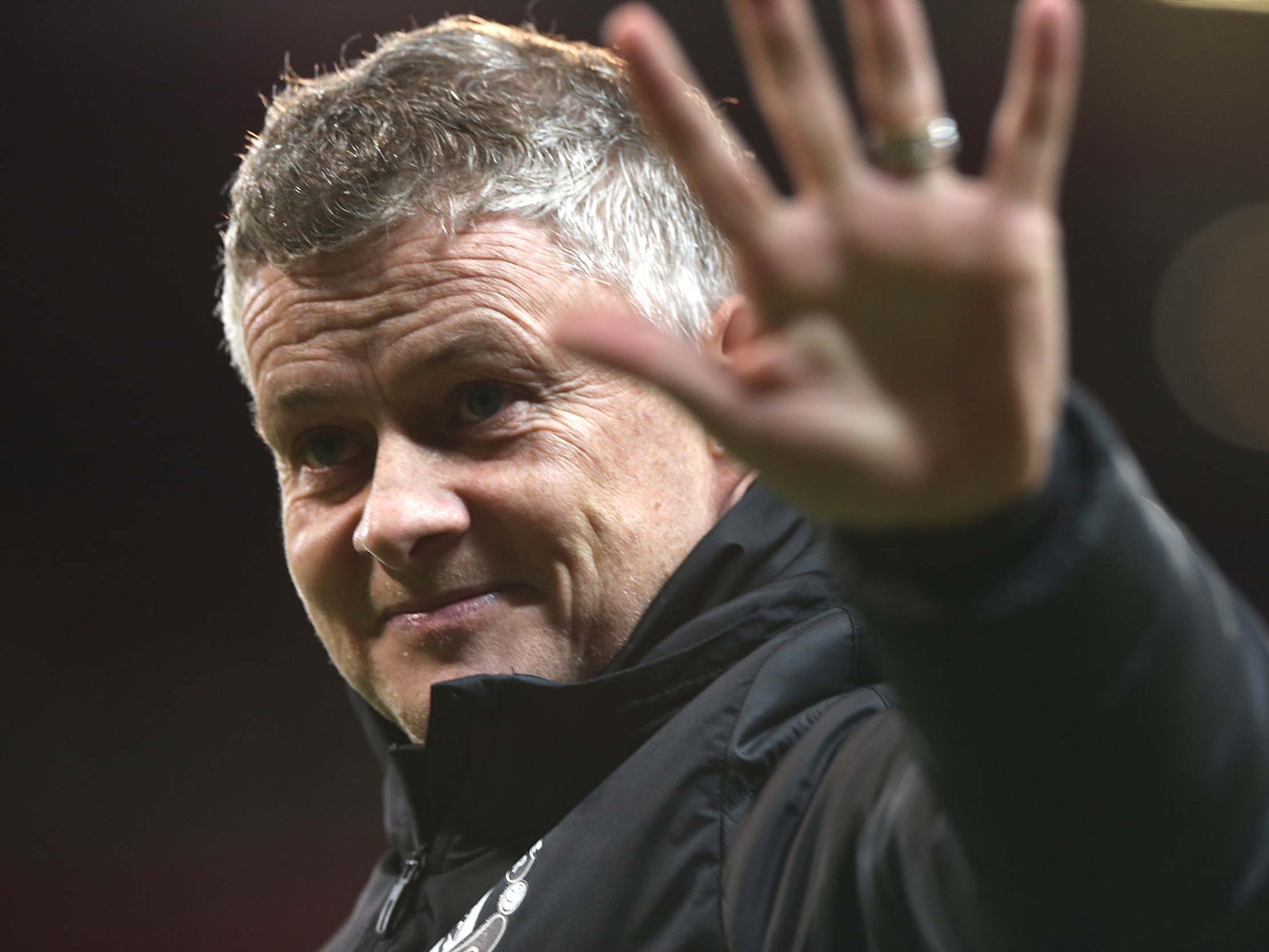Manchester United vs Man City: How derby rerun will test Ole Gunnar Solskjaer’s tactical limits
Norwegian knows the very best sides impose themselves rather than reacting to the opposition

Your support helps us to tell the story
From reproductive rights to climate change to Big Tech, The Independent is on the ground when the story is developing. Whether it's investigating the financials of Elon Musk's pro-Trump PAC or producing our latest documentary, 'The A Word', which shines a light on the American women fighting for reproductive rights, we know how important it is to parse out the facts from the messaging.
At such a critical moment in US history, we need reporters on the ground. Your donation allows us to keep sending journalists to speak to both sides of the story.
The Independent is trusted by Americans across the entire political spectrum. And unlike many other quality news outlets, we choose not to lock Americans out of our reporting and analysis with paywalls. We believe quality journalism should be available to everyone, paid for by those who can afford it.
Your support makes all the difference.It was Jurgen Klopp who said beating Manchester City by sitting deep and absorbing pressure would be like “winning the lottery”. It’s possible but it’s unlikely. Then Ole Gunnar Solskjaer bought a ticket earlier this month and left the Etihad celebrating a famous derby victory.
And now, following the EFL Cup semi-final draw on Wednesday night, Solskjaer gets to play the odds all over again. If he is to win his first trophy since being appointed Manchester United manager as early as March, he must overcome City again – not in a one-off game but in a two-legged tie.
It sounds like a daunting prospect but Solskjaer appeared excited by the draw in his post-match press conference. “Fantastic days in Manchester,” was his initial reaction. “Of course, we do really respect them and as I said after the derby last time, in my opinion, they are the best team in England.”
Despite City’s 14-point deficit to league leaders Liverpool, Solskjaer fears them more than any other opponent. “They can out-football you so we need to get our game heads on and be ready for them again. But we’ve shown them that we can cause them problems. I think they will be two fantastic games.“
And United’s performance at the Etihad just short of a fortnight ago should give Solskjaer every reason to believe that his side can ruthlessly exploit City’s weakness to the counter. In Marcus Rashford, Anthony Martial and Daniel James, he is developing an attack that is truly lethal when it has space to play into.
Jamie Carragher has an intimate knowledge of Liverpool’s battles with City over the last few years, but even he described United’s opening half-hour in the recent derby as the best managed by any side against Pep Guardiola since his arrival. Surely it is just a case of Solskjaer saying: “Same again, lads”?
But Solskjaer admitted on Wednesday night that he spent 10 minutes of that opening half-hour “hanging in there”, watching from between his fingers. “We’ve looked at that game and we’re very pleased with the result and parts of the game, but there were things we need to do so much better,” he said.
“We’ve got to stamp our authority more on them. There’s not many that can do, but we’ve got the aim for that and strive for that. I don’t think you’ll beat City twice in a row or three times with the same tactics so we’ll have to do something better than we did last time. I’m sure Pep will have his team fired up.”
It was a surprising admission but a commendable one, delivered in the same spirit as Klopp’s ‘lottery’ quip in January last year. Solskjaer realises that the very best sides impose their own game on opponents, even those with the quality of City. He wants United to be at that level. The question is: are they?

The quarter-final win over fourth-tier Colchester to book a place in the last four was comfortable in the end, won by three unanswered goals, but the score was level at half time and despite Solskjaer’s insistence that United played better in the first half than the second, some familiar problems emerged.
Again, United struggled to create clear-cut opportunities against deep-set defences. Again, their plans were thwarted by less ambitious opponents. That all changed after the break, but it was telling that Marcus Rashford’s breakthrough came on the counter, seconds after Colchester’s first significant attack.
United are a reactive rather than proactive team. That is not necessarily a criticism, but if Solskjaer wants to play a different way, he will need to show a tactical dexterity which has often been missing. It will take a lot of work on the training ground between now and 7 January amid a busy Christmas period.
There is simply a long way to go before United impose their own playing style on elite opponents. If they do come out on top in the derby double-header, expect them to play a lot like they did two weeks ago.
Join our commenting forum
Join thought-provoking conversations, follow other Independent readers and see their replies
Comments